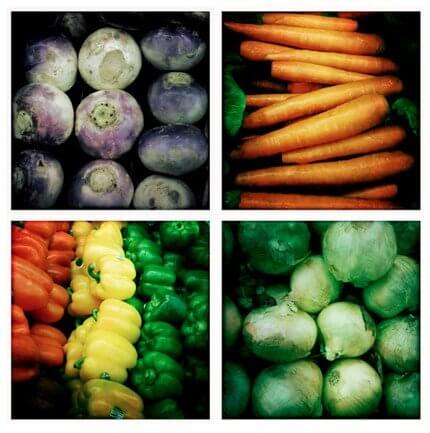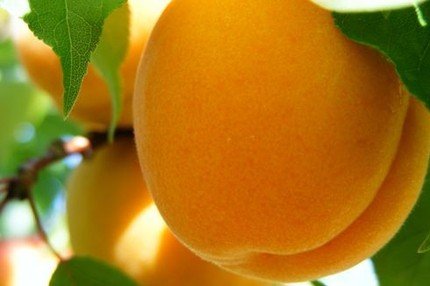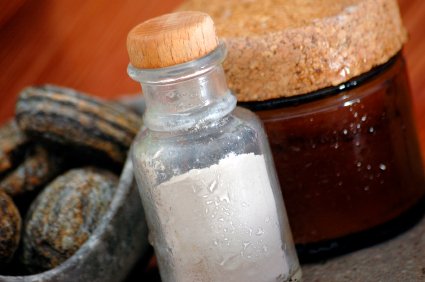Organic Food on a Budget

Written by Angela Beery, Contributing Writer
Now that the spring season is upon us, it is the perfect time to talk about fresh, local produce! Many exciting opportunities are ahead of us in the coming months.
I don’t know about you, but I am looking forward to taking a stroll down to the farmer’s market, grilling locally grown vegetables and picking my own strawberries at a local farm!
During this tough economic time, many families who normally buy solely organic food are finding it more difficult to do so. Although it is always best to buy organic (for the sake of the soil and the farm workers), for many this is just not possible right now.
So, how can we balance the undeniable need to eat right with the financial pressures we are facing as a society? How can we provide the maximum amount of safe and healthy foods while staying within a tight budget?
Be encouraged – it can be done! With a little bit of planning and creativity and by eliminating refined and processed foods completely from our grocery lists, eating organic foods can really be affordable!
Selecting food for our families is a huge issue that cannot be addressed in one post, which is why I have provided links that I hope will inspire further research.
Safe/Healthy Food
When feeding a family the rule is as simple and as obvious as this – if it’s not food, don’t eat it. Food full of harmful chemicals found in pesticides, hormones and antibiotics are simply not an option. Refined and processed foods, too, are expensive and of little to no nutritional value.
The Dirty Dozen
Most likely you are familiar with the “Dirty Dozen,” a list of the twelve most highly contaminated fruits and vegetables put out by the Environmental Working Group. The produce on the “Dirty Dozen” list have thin skins, which provide little or no barrier to pesticides entering into the food itself.
Try Substituting!
If you are finding the organic versions of the “Dirty Dozen” to be too expensive, try substituting! There are safe, non-organic, alternatives to the “Dirty Dozen.”
Listed below are the “Dirty Dozen” and some alternatives.
Peaches – watermelon, tangerines, oranges and grapefruit
Apples – watermelon, bananas and tangerines
Bell Peppers – green peas, broccoli and cabbage
Celery – broccoli, radishes and onions
Nectarines – watermelon, papaya and mango
Strawberries – blueberries, kiwi and pineapples
Cherries – blueberries, raspberries and cranberries
Kale – cabbage, asparagus and broccoli
Leafy Greens – cabbage, cauliflower and Brussels sprouts
Grapes – blueberries, kiwi and raspberries
Carrots – sweet corn, sweet peas and broccoli
Pears – grapefruit, honeydew melon and mangos
Potatoes – eggplant, cabbage and earthy mushrooms
 The “Clean Fifteen”
The “Clean Fifteen”
Much emphasis has been put on the “Dirty Dozen” in the media lately, but very few people have heard of what is called the “Clean Fifteen.”
The items on the “Clean Fifteen” list are those with thick, protective skins that are the least susceptible to pesticides.
The list includes: Onions, Avocados, Sweet Corn, Pineapple, Broccoli, Mango, Asparagus, Sweet Peas, Kiwi, Tomato, Cabbage, Eggplant, Papaya, Watermelon and Sweet Potato.
According to the Environmental Working Group, families can reduce their intake of pesticides by 80% by eating fruits and vegetables on “the Clean Fifteen” list and only organic versions of “the Dirty Dozen.”
It is important to note that there are a few food items that are just not safe unless in organic form. Among the produce listed on the “Dirty Dozen,” the Environmental Working Group also recommends organic, hormone and antibiotic free milk, coffee and meat products.
Budget Tips
Feeding organic food to your family truly can be affordable.
Here are ten tips that will help you make it happen:
1. Commit to buying organic versions of those foods with the  highest levels of pesticides and hormones. This includes milk, meat and produce items found on “the Dirty Dozen” list.
highest levels of pesticides and hormones. This includes milk, meat and produce items found on “the Dirty Dozen” list.
2. Buy in season. Seasonal fruits and vegetables usually cost less. For a list of seasonal foods in your area, check out Sustainable Table.
3. Shop the sales. Base your meal plans off of what is on sale and buy in bulk when items you use frequently are on sale.
4. Buy local. Purchasing locally grown food cuts down on transportation costs and supports the local economy. As a result you will save money, too!
5. Pick your own produce. For a list of farms where you can pick your own produce visit www.pickyourown.org. Picking your own food can save you money and it’s fun, especially for kids!
6. Join a CSA (Community Supported Agriculture). It’s local, it’s healthier and you get a TON of produce for your money – what more could you ask for?
7. Shop the Farmer’s Market. Buying directly from the farmer saves you money and gives you the added benefit of knowing exactly who your food comes from.
8. Grow Your Own Organic Garden. Keeper of the Home is one of the greatest resources on organic gardening. There are also numerous blogs/websites available that provide information on how to grow your own organic garden. For the greatest success, search for sites that apply specifically to the region you live in. Hone your gardening skills by taking a Master Gardener class this summer at your local cooperative extension.
9. Try Freezing and Canning. Freeze and/or preserve bulk items from the farm stand or home garden to last throughout the winter months. You can read up on safe freezing and canning methods at your local library or at Pick Your Own. The best resource available on freezing baby foods is Super Baby Food by Ruth Yaron.
10. Commit to buying only whole, unprocessed and unrefined foods. Highly processed and refined foods provide little nutritional value and are very expensive. Eating whole foods means your family will consume less, maintain a healthier body weight, and have a higher resistance to illness, more energy and better moods. By eliminating processed and refined foods from your grocery list, you will find that you have more money to spend on whole/organic food.
Is buying organic important to you? If so, how do you make it work in your budget?
Photo Credit: flandersfield




Loved the post – will be linking to it on my series of “Eating on a Tight Budget” – which started out as a quest to see if it IS possible to eat healthy (and wholly) on a very tight budget. Turns out it is. Appreciate your post!
~Summer
http://summersperspective.wordpress.com
Great post! I haven’t heard of the Clean Fifteen before, so that was great. We eat a whole foods/vegetarian diet and although we get supplemental foods through WIC including milk, and produce, those cannot be organic or hormone free, unfortunately, so for now in our season of life, we just have to shrug that off, and know the other things we’re doing are helping a great deal.
We are also members of a CSA and WOW you will not believe how much produce you get. When you break down the numbers, you REALLY get more than you have paid for over the course of the 20 weeks.
I am also a big fan of pick your own website, too! Thanks for sharing it on this blog, too, so more people can find out abotu farms in their area. My kids LOVE to do it, and it has become a 3 generation tradition in my household, every early June to go strawberry picking with the kids and Grammie. 🙂
Sarah M
@Sarah M,
Pick your Own is such a great site! I only wish I had found it sooner! I’m not afraid of a little dirt under my fingernails – it’s good for the soul 🙂
.-= Angela Beery´s last blog ..Homemade Lemonade – Sweetened with Blackstrap Molasses =-.
I found a wonderful organic farmer and I buy whatever he has. I also just found a source for fresh eggs just 5 minutes from my house. I’m a So Cal girl too 🙂
Jana
.-= Jana @ The Summer House´s last blog ..Thanks! Nancy =-.
@Jana @ The Summer House,
I’m still on the hunt for fresh eggs, but as for now a friend of mine brings me about a dozen once a month. Great to see another SoCal girl on here!
.-= Angela Beery´s last blog ..Homemade Lemonade – Sweetened with Blackstrap Molasses =-.
This is a great post! I am learning more and more about eating foods in season, as I was not raised to pay attention to that at all. I’m also working hard to cut out the processed foods from our diet. I do try to buy the dirty dozen organic when I can, but in our small town, that just isn’t always possible without travelling a good distance. I will have to consider your alternatives list more. Thanks!
.-= Greta @ Mom Living Healthy´s last blog ..There is Life in the Garden! =-.
I think the “dirty dozen” & “clean fifteen” lists have been recently revised (2010). Unfortunately, blueberries are now on the dirty side of the list. Fortunately they make beautiful bushes in the yard and are easy to grow at home.
Though sweet corn is on the “clean 15” list, you should check with your local farmer and make sure they are not growing GMO sweet corn as it is becoming more common.
@Ann, Very true, Ann! I was actually surprised to see corn on the clean list, simply because it is soooo commonly GMO. But I suppose that’s not what the clean/dirty list is about. I still think it’s very important, though!
Great post! I have a couple of comments, mostly for those newer to the idea.
CSA fees (at least in my area) have to be paid up front, even tho they are listed as weekly costs. That takes some planning ahead! Took it out of the realm of possibility until it had already been in the budget for a year in our case.
It slowly dawned on me that our *local farmer’s market* was actually run by one person despite its set-up to look otherwise, and the food is certainly not all local. What really clued me in was the wide variety of foods they had all winter:-/ That leaves me burning gas to a real farmer’s market in another nearby town, or driving all over to find roadside stands – which are also not always what they appear. Always do diligence!!
Organic in the supermarkets is almost always long-distance, even at places like Sprouts, Central Market, and Whole Foods. I say get local whenever possible, which just means eating seasonally. But you already covered that…
I’d never heard of the Clean 15 either. That’s the kind of thing you want to stick to your fridge for quick reference before you shop!
Any readers in TN are welcome to come visit us at http://BulkNaturalFoods.com. Our coop buys minimally sprayed and organic fresh fruits in season by the semi truck load, so the prices end up being really good for each family.
I’m striving to buy organic and local foods, but I live in Sydney and it just isn’t affordable. Have any other Sydneysiders had success finding affordable, organic produce?
Well, Blueberries are on the list of worst fruits. Also although corn is low in pesticides, it is heavily sprayed which is still bad for the soil and environment.
I have had luck buying frozen organic fruit at the grocery store. Of course it’s not the same as a fresh container of strawberries, but I am glad to still have the flavor without the chemicals.
Finally the mainstream is catching up…this same info was posted in the Toronto Star today.
http://www.healthzone.ca/health/dietfitness/diet/foodsafety/article/817679–celery-peaches-and-strawberries-are-the-most-contaminated-by-pesticides?bn=1